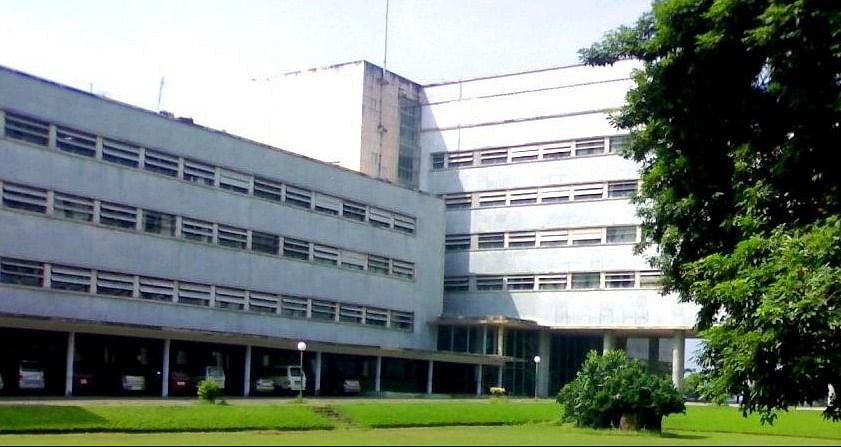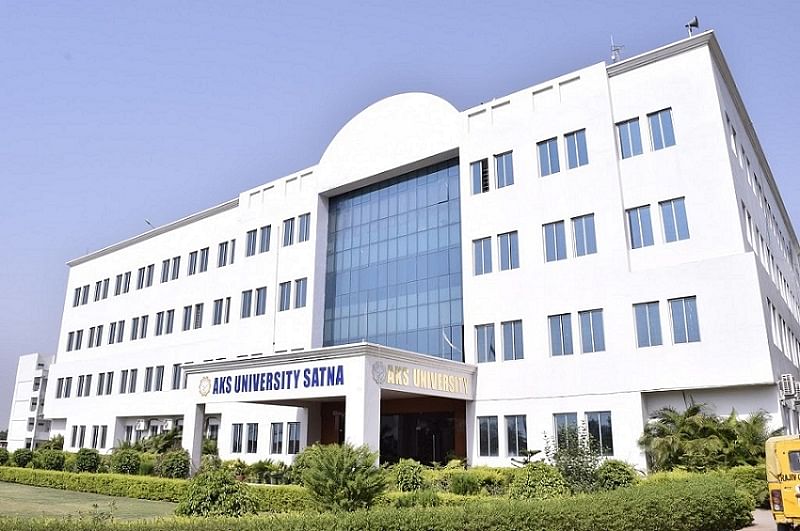M.Sc Agriculture

M.Sc Agriculture is a two-year postgraduate course pursued by students after completing their three-year graduation degree or bachelor's in Agriculture, Horticulture, or Forestry with 50% aggregate marks or equivalent CGPA from a recognized university. As agriculture-related is one of the job types worldwide, students with a degree can find employment in many international job sectors. For example, they can fulfill the role of an Agriculture Officer, Production Manager, Farm Managers, etc.
M.Sc Agriculture Course Details
| Degree | Masters |
| Full Form | Master of Science in Agriculture |
| Duration | 2 Years |
| Age | No age limit |
| Minimum Percentage | 50% in Under Graduation |
| Average Fees | ₹50K - 1.5 LPA |
| Similar Options of Study | M.Sc (Horticulture), M.Sc (Agronomy) |
| Average Salary | INR 1.5 - 2.5 LPA |
| Employment Roles | Research Officer, Agriculture Assistant, Agriculture Officer, District Superintendent of Agriculture |
About M.Sc Agriculture
According to Wikipedia," Agriculture was the key development in the rise of sedentary human civilization, whereby farming of domesticated species created food surpluses that enabled people to live in cities."
The specialization falls under the umbrella of M.Sc. The M.Sc Agriculture course is a gratifying career for those with high communication, analytical, and language skills. Postgraduates with an M.Sc Agriculture are hired in Agriculture/Dairy Industries, Academic Institutions, Fertilizer industries, Food Processing Units, Agricultural Products Marketing firms, and many more, thus showing off its high job scope.
Table of Contents
- M.Sc Agriculture Eligibility Criteria
- M.Sc Agriculture Admission Process
- M.Sc Agriculture Entrance Exams
- M.Sc Agriculture Colleges
- Why Choose M.Sc Agriculture?
- M.Sc Agriculture Fees Structure
- M.Sc Agriculture Syllabus and Subjects
- Preparation Tips for M.Sc Agriculture
- Scope of Higher Education for M.Sc Agriculture
- M.Sc Agriculture Salary
- M.Sc Agriculture Career Options
- Skills to Excel
Eligibility Criteria for M.Sc Agriculture
Admission for the M.Sc Agriculture Course in India begins with checking the course's eligibility criteria, including a minimum aggregate of 45-50% in a B.Sc Agriculture Course or an equivalent degree in any reputed University or university Institution. If not percentage, there must be an equal CGPA. A passing score is required on AGRICET, ICAR AIEEA, MCAER PC CET, CUCET, PAU MET, or the necessary entrance exams. This course is open to all ages. Currently, M.Sc Agriculture in India is a top-rated and high-demand course and offers a high job scope for aspirants after immediately passing out.
Admission Process for M.Sc Agriculture?
The M.Sc Agriculture admission process begins with the student having a minimum aggregate score of 45% to 50% in B.Sc Agriculture or any other equivalent degree from any recognized college or institute, along with passing marks on entrance exams conducted by national bodies, institutes, or a group of institutes. Then, aspirants are called to write a written test, participate in group discussions, and have a personal interview after passing these exams. Students are selected for final admission based on their performance in these rounds. Students are also admitted to private colleges through management quota, seats of which are limited in numbers.
Though the admission process varies from college to college, below mentioned are the steps that one should go through generally to get admission:
How to Apply?
The online portal/offline network must be used to get the application form first. It has to be filled. Because of covid, online is the only option available right now. Once done, the aspirant has to upload/attach the required documents per the guidelines and the specifications mentioned. Apply for a loan if necessary and pay the fee if selected.
Selection Process
The selection is based on the M.Sc Agriculture eligibility criteria of the minimum scores in the listed exams. Once that is done, there might be an entrance test in colleges. After passing those with a decent score, the aspirant is selected. Either with/without the loan, the fee has to be paid depending on the ones quoted by the institution.
Popular Entrance Exams for M.Sc Agriculture
Some universities and institutions or even states may conduct their entrance examinations for M.Sc Agriculture admissions. The exam includes topics Tillage, crops stand establishment, Planting geometry and its effect on growth and yield cropping systems, and many more subjects, helping them get an overview of the course. The exams are:
- AGRICET
- ICAR AIEEA
- MCAER PC CET
- CUCET
- PAU MET
A Quick Glance At the M.Sc Agriculture Entrance Exams
The students must qualify for the national or state level M.Sc Agriculture entrance exams such as BHU PET, JNUEE, IPU CET, OUCET, DUCET, etc. Aspirants can choose B- schools or coaching institutes that prepare students for the entrance exams. The entrance exam gives a glance at the entire course, thus giving an overview of the topic.
- The aspirant needs to learn time management to be able to attempt all the questions.
- Time management and aptitude knowledge are required for the generalized section.
- The exams are held only in English, and thus language proficiency is a must.
- Study the entire syllabus for the entrance exams, covering each topic and studying the objective and descriptive questions in detail.
- Skills to prepare are
Top 10 M.Sc Agriculture Colleges in India
India has a variety of colleges offering a course in M.Sc Agriculture. Since it's a form of specialization, it requires a practical and theoretical study which helps them get in-depth knowledge on the course. These are the top 10 colleges in India, according to the updates given in 2021.
|
SI.No. |
Name of the College |
|
1 |
|
|
2 |
Tamil Nadu Agriculture University, Chennai |
|
3 |
|
|
4 |
|
|
5 |
|
|
6 |
|
|
7 |
|
|
8 |
|
|
9 |
|
|
10 |
Fee Structure for M.Sc Agriculture
The M.scAgriculture course fees may vary based on colleges. A government-based institute charges less than a private institute because of its infrastructure and facilities. The average price of an M.scAgriculture course in a private institute is about INR 20 - 50K/Annum.
|
College Name |
Fees Per Annum |
|
IARI, New Delhi |
INR 43.15K |
|
Khalsa College, Amritsar |
INR 93K |
|
DBSKKV, Ratnagiri |
INR 19.1K |
|
Punjab Agriculture University |
INR 1.4 LPA |
|
Tamil Nadu Agriculture University |
INR 90K |
Syllabus and Subjects for M.Sc Agriculture
The M.Sc Agriculture course is a two-year program consisting of 4 semesters. It covers Agronomy, Biotechnology, Agricultural Economics & Farm Management, Plant Physiology, Entomology, Extension Education, etc. Depending on the course modules, each college may have its topics and subjects. A few of the subject topics are:
- Agronomy
- Biotechnology
- Plant Breeding & Genetics
- Food Science & Technology
- Forestry
- Soil Science & Agricultural Chemistry
Read More About M.Sc Agriculture Syllabus and Subjects
Why Choose M.Sc Agriculture?
M.scAgriculture is a highly demanding course for aspirants trying to work in the agricultural/ plant science/ production field. It is a course that provides a wide range of opportunities. This program emphasizes the importance of research for developing students' understanding and furthering their learning. It even offers a high job scope abroad because of the language proficiency. The course itself is a highlight in one's CV, thus emphasizing its enormous job scope.
What is M.Sc Agriculture all About?
M.scAgriculture or Master of Science in Agriculture is a two years Post Graduate course. Graduate students with a BSc. Agriculture or graduation degree from a recognized university can pursue this program. This course helps students develop analytical and critical thinking skills for producing original insights in science and thinking/communication. M.scAgriculture course list extensively covers topics from advanced techniques of farming and the scientific study of agriculture. Considering it to be such a broad topic, students have the opportunity to select elective courses and specialize as they wish. Postgraduates with an M.scAgriculture are hired in Agriculture/Dairy Industries, Academic Institutions, Fertilizer industries, Food Processing Units, Agricultural Products Marketing firms, and other fields, thus showing its enormous job scope.
What Does an M.Sc Agriculture Graduate Do?
M.scAgriculture graduates have various job roles and career-related plus points because of their excellent knowledge of the most needed language. The aspirant chooses to work with an academic or agricultural or do research and pursue further education. Some of the options are:
Further studies: Graduates of the M.scAgriculture programs have several career options to choose from but even have an option to study further. If they wish to pursue higher education, they can enroll in a program of M.Phil or Ph.D. in any branch of Agriculture.
Teaching Profession: Graduates can pursue teaching positions in educational and research institutions to share their knowledge and expertise with younger students.
Job role: M.scAgriculture aspirants have various job roles and are hired in Agriculture/Dairy Industries, Academic Institutions, Fertilizer industries, Food Processing Units, Agricultural Products Marketing firms, etc. Some of the designations are Corporate Sales Manager, Research Scientist, Lecturer/Professor, Field Officer, etc.
Reasons Why M.Sc Agriculture Can Fetch You a Rewarding Career?
M.sc Agriculture is an accredited master's program and provides the aspirants with high career opportunities and other benefits. Since agriculture is a significant factor nowadays, being a master's in it is a plus that one would carry. Any firm would accept a person with language knowledge. The benefits of the course are:
High Pay: The job offers a good starting salary for freshers and a well of ones for senior or experienced graduates, thus marking it as a good one in the economy.
Exposure: A M.scAgriculture degree gives good communication skills, thus having a good effect as a part of CV and gives a good job scope even abroad, because of the language skills. It even helps a person become a public figure.
Opportunities: It gives a broad job scope in various sectors as agricultural knowledge is the most basic requirement. It even has a high job scope abroad.
Read More about M.Sc Agriculture Jobs
Preparation Tips for M.Sc Agriculture
M.scAgriculture entrance exams involve both an aptitude and a knowledge testing type of questions. So being well prepared with it would be of use. Since the exams themselves brief the course, it would be of more use to get into an in-depth study. Below are some preparation tips made by experts for aspirants who want to pursue M.scAgriculture.
Time Management: The aspirant should be capable of answering all the questions in the specified time. Since it involves science, it would be lengthy.
Reading Newspapers: General knowledge and current affairs questions are often asked in entrance exams and sometimes in personal interviews and group discussion rounds.
Skills: Trying to focus more on Quantitative Aptitude, Analytical Reasoning, Descriptive Types, Data Interpretation, etc., which are all included in the questions.
Scope For Higher Education
Having an M.Sc Agriculture degree opens up a wide range of career options. It is even possible to study further after completing the course. The most commonly followed path in this aspect is the Doctorate degrees, which can be obtained in different specializations involved in the course module. When higher education and the MSc degree are put together, it gives the students a high job scope. A few of the courses are:
- M.Phil in Horticulture
- M.Phil in Agriculture
- M.Phil in Genetics and Plant Breeding and Horticulture
- M.Phil in Agricultural Economics
- Ph.D in Agriculture Economics
- Ph.D in Agriculture Zoology
Salary of an M.Sc Agriculture Graduate
The starting salary of an M.Sc Agriculture graduate would be around INR 3.5 - 4 LPA. As skills and experience increase, so will the salary increment. The salary varies depending on whether it's a private or a public sector and the firm's popularity. Even the job role of the aspirant is a factor that is noted while the salaries are discussed. For instance, an editor might get paid more than a writer at times.
Read More About M.Sc Agriculture Salary
Career Options After M.Sc Agriculture
After completing a course in M.Sc Agriculture, the aspirant can work in public and private sectors depending on the type of work they prefer or the skills they have. They even have further specialization by doing a postgraduate degree like a doctorate or further extension by other full-time courses. But even the MA degree has a high job scope because of the demand and the industrialization and development happening.
Some of the best job designations for the graduates after the course of M.Sc Agriculture in the government sector are as follows:
- Technical Managers
- Junior Research Fellows
- Senior Research Fellows (Agriculture)
- Technologists
- Researchers
Some of the best M.Sc Agriculture career options in the private sector are:
- Quality Assurance Officer
- Agriculture Officer
- Agriculture Loan Officer (in Banks)
- Production Manager
- Operations Manager
Skills That Make You The Best after M.Sc Agriculture
The M.scAgriculture course provides a career boost for people seeking jobs in agriculture/ plants development fields. It opens a variety of career opportunities for aspiring agriculturists at various international agencies.
Some of the skills required for the M.Sc Agriculture graduates are as follows:
- Empathy
- Communication Skills
- Analytical Reasoning
- Data Skills
Top M.Sc Agriculture Colleges
Top Agriculture Entrance Exams
M.Sc Agriculture Fee Structure
FAQs on M.Sc Agriculture
Q: What is the duration of the M.Sc Agriculture Course?
Q: What is the list of specializations that can be done under Agriculture?
Q: What are the current job scopes for graduates of Agriculture?
Q: What is the average salary offered for a graduate of this course?
Q: What are the basic qualifications required for M.Sc Agriculture?























